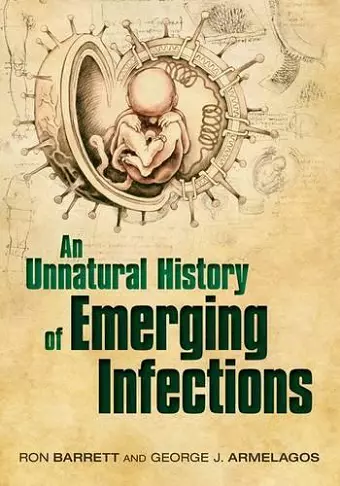An Unnatural History of Emerging Infections
Ron Barrett author George Armelagos author
Format:Hardback
Publisher:Oxford University Press
Published:19th Sep '13
Currently unavailable, and unfortunately no date known when it will be back

This book traces the social and environmental determinants of human infectious diseases from the Neolithic to the present day. Despite recent high profile discoveries of new pathogens, the major determinants of these emerging infections are ancient and recurring. These include changing modes of subsistence, shifting populations, environmental disruptions, and social inequalities. The recent labeling of the term "re-emerging infections" reflects a re-emergence, not so much of the diseases themselves, but rather a re-emerging awareness in affluent societies of long-standing problems that were previously ignored. An Unnatural History of Emerging Infections illustrates these recurring problems and determinants through an examination of three major epidemiological transitions. The First Transition occurred with the Agricultural Revolution beginning 10,000 years ago, bringing a rise in acute infections as the main cause of human mortality. The Second Transition first began with the Industrial Revolution; it saw a decline in infectious disease mortality and an increase in chronic diseases among wealthier nations, but less so in poorer societies. These culminated in today's "worst of both worlds syndrome" in which globalization has combined with the challenges of the First and Second Transitions to produce a Third Transition, characterized by a confluence of acute and chronic disease patterns within a single global disease ecology. This accessible text is suitable for advanced undergraduate and graduate level students and researchers in the fields of epidemiology, disease ecology, anthropology, health sciences, and the history of medicine. It will also be of relevance and use to undergraduate students interested in the history and social dynamics of infectious diseases.
Its core ideas are important and need to be widely disseminated, to help medical professionals and biomedical researchers look beyond the borders of their disciplines, but also to improve popular understanding and inform social policy. * Danny Yee, Danny Yee's Book Reviews *
By taking an historical perspective, the authors of this book are able to weave together a more complex and interesting account of how social, economic, environmental and technological factors have created todays global disease ecology * British Ecological Society Bulletin *
ISBN: 9780199608294
Dimensions: 242mm x 175mm x 15mm
Weight: 426g
154 pages